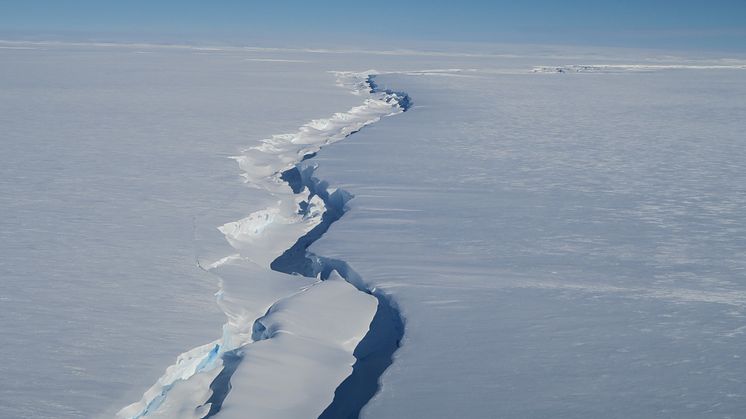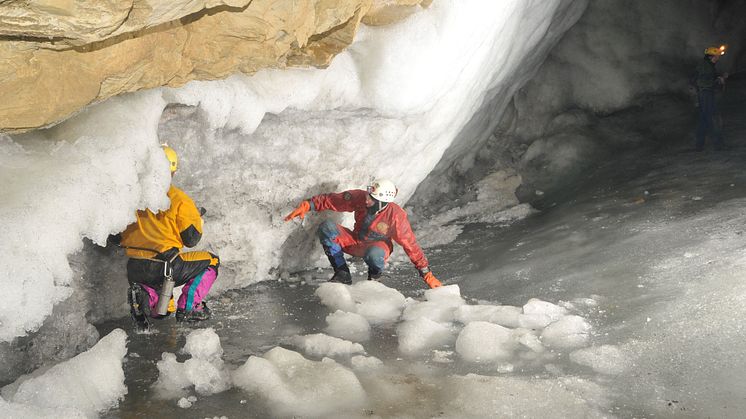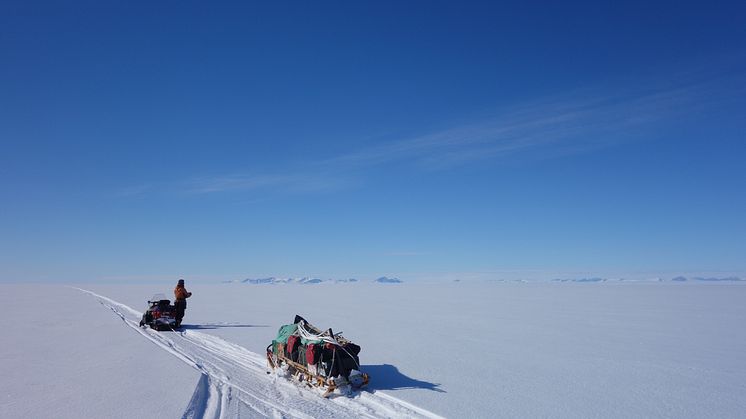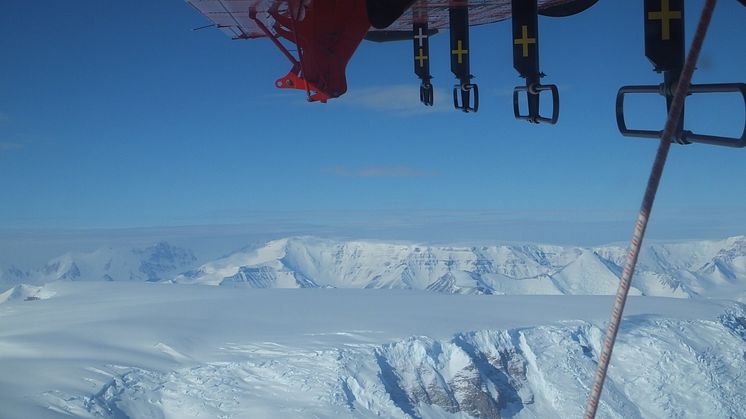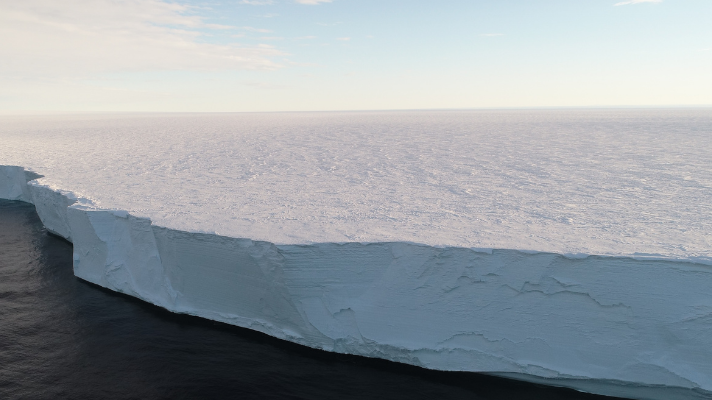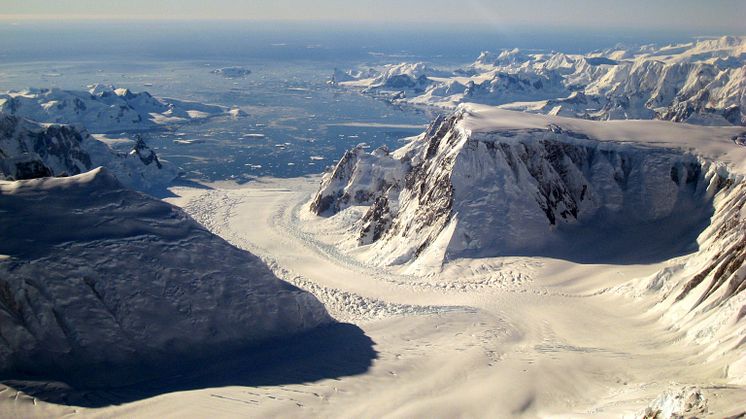
Press release -
£4m study to investigate if climate change will drive the Antarctic Ice Sheet towards a tipping point
A major £4 million EU-funded study to investigate how changes in Antarctica’s ice sheets and shelves may lead to a large and irreversible rise in global sea level over the coming decades is about to begin.
Experts from the UK, Norway, Germany and France will work together to investigate the likelihood of abrupt changes in the movement of ice in the Antarctic region over the next 100 years.
Northumbria University is the only UK partner in the consortium and receives the largest part of the total funding, worth £1.2 million.
While some parts of the environment may respond gradually to changes in climate, others may potentially undergo large and sudden irreversible step changes with global implications – which is known as a tipping point.
The researchers will investigate the possibility that climate change may drive the Antarctic Ice Sheet and the Southern Ocean towards such a tipping point.
Theoretical and numerical studies already suggest that this is possible. However, it is unclear how close the Antarctic climate system is to a tipping point, and how likely it is that global warming may cause abrupt and large-scale changes to the Antarctic Ice Sheet.
Antarctica’s ice is based both on land – known as the ice sheet – and on sea, where it forms floating ice shelves bordering the land. The point where the ice sheets and ice shelves meet is called the grounding line. The ice shelves act as a safety band holding the land-based ice sheet in place.

If the ice-shelves disappear, for example though increased melt caused by warming oceans, the grounding lines may become unstable. If the unstable grounding-line was to retreat it will result in a greatly increased flow of ice into the ocean. This could lead to a potential impact on global sea level as large as several metres.
The study has two elements relating to changes to the oceans and to the ice. One team of researchers will investigate what might happen when the oceans underneath the Antarctic ice shelves begin to become warmer. The other team will consider what will happen to the Antarctic ice sheet when grounding lines become unstable, potentially as a result of the ocean conditions becoming warmer.

Hilmar Gudmundsson, Professor of Glaciology and Extreme Environments at Northumbria University, explains: “We are very concerned at how much ice mass can flow from the land into the ocean across the grounding line.
“In recent years we have realised that the position of the grounding line can become unstable, which can cause an uncontrolled, unstoppable advance of ice moving into the sea. This could have catastrophic global impacts and raise sea levels by a metre or even more in as little as 100 years.
“We want to assess the chances of Antarctica’s ice sheets entering an unstable retreat caused by the thinning or disappearance of the ice shelves.”
Professor Gudmundsson said that the findings would improve our knowledge of sudden sea level rise caused by tipping points in Antarctica’s climate system.
“This project has vast scope to provide a step-change in our understanding and fundamentally effect the way that we think about Antarctica and the Southern Ocean,” he said. “Our research can be expected to have significant implications for our understanding of the risks posed to humanity by global warming.”
The research is supported through the European Union’s Horizon 2020 research and innovation programme. One of its main objectives is to fill knowledge gaps ahead of the next Intergovernmental Panel on Climate Change (IPCC) assessment scheduled for 2023, and to provide guidance for policy makers ahead of the 2023 Paris Agreement.
The IPCC is a United Nations panel which provides regular assessments of the scientific basis of climate change, highlighting its impacts, future risks and potential options, while the Paris Agreement brings nations together to strengthen the global response to the threat of climate change.
More information on the Tipping Points in Antarctic Climate Components (TiPACCs) study can be found at www.tipaccs.eu
Other partners involved are Norway’s Uni Research AS – part of the University of Bergen – Potsdam Institute for Climate Impact Research in Germany, Alfred-Wegener Institute in Bremerhaven, Germany, and Université Grenoble Alps in Grenoble, France.
Northumbria is quickly becoming known as one of the UK’s leading universities for research into Antarctic and extreme environments.
Within the past 12 months, researchers have uncovered a vast range of hidden valleys and canyons buried under the continent and have provided evidence of the imminent break-off of a section of the Brunt Ice Shelf, which will lead to a large iceberg twice the size of New York City floating in the Weddell Sea. They have also begun work on a major NERC-funded study worth £754,000 to investigate the future of the enormous Thwaites Glacier.
This research was supported by the European Union’s Horizon 2020 research and innovation programme under grant agreement no. 820575 (TiPACCs).
Topics
Categories
Northumbria is a research-rich, business-focused, professional university with a global reputation for academic excellence. To find out more about our courses go to www.northumbria.ac.uk
If you have a media enquiry please contact our Media and Communications team at media.communications@northumbria.ac.uk or call 0191 227 4604.







